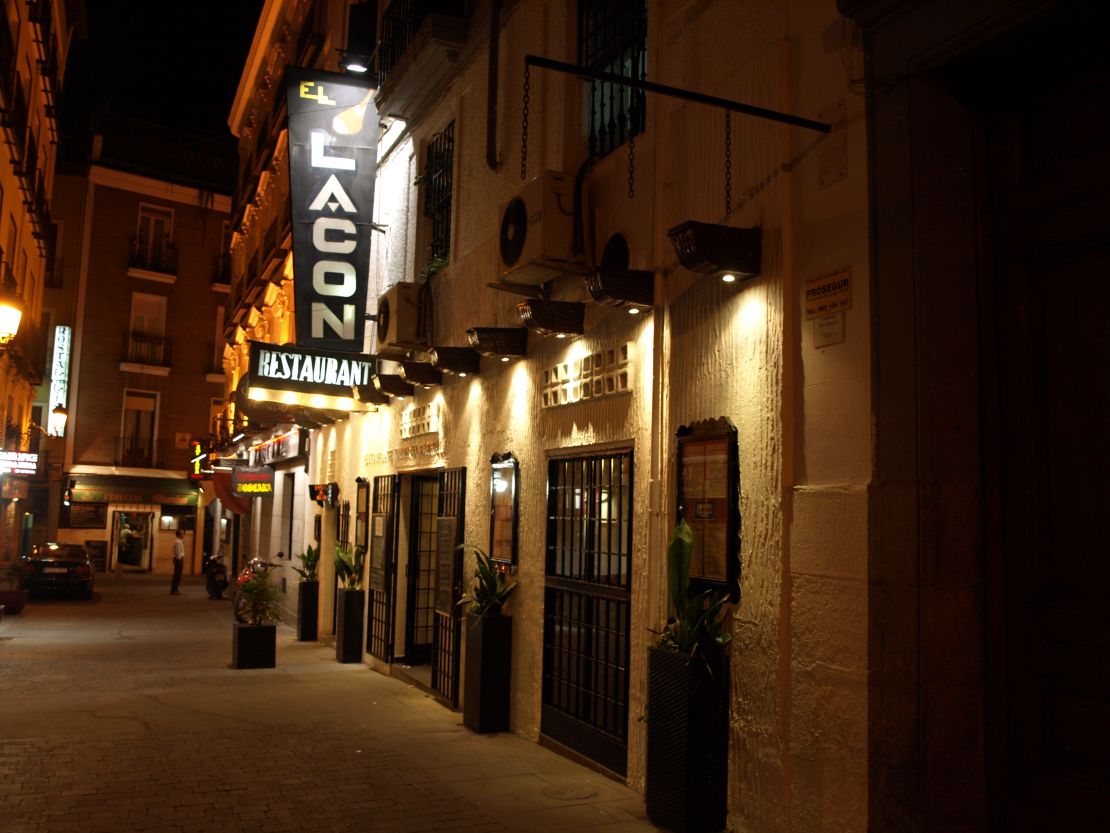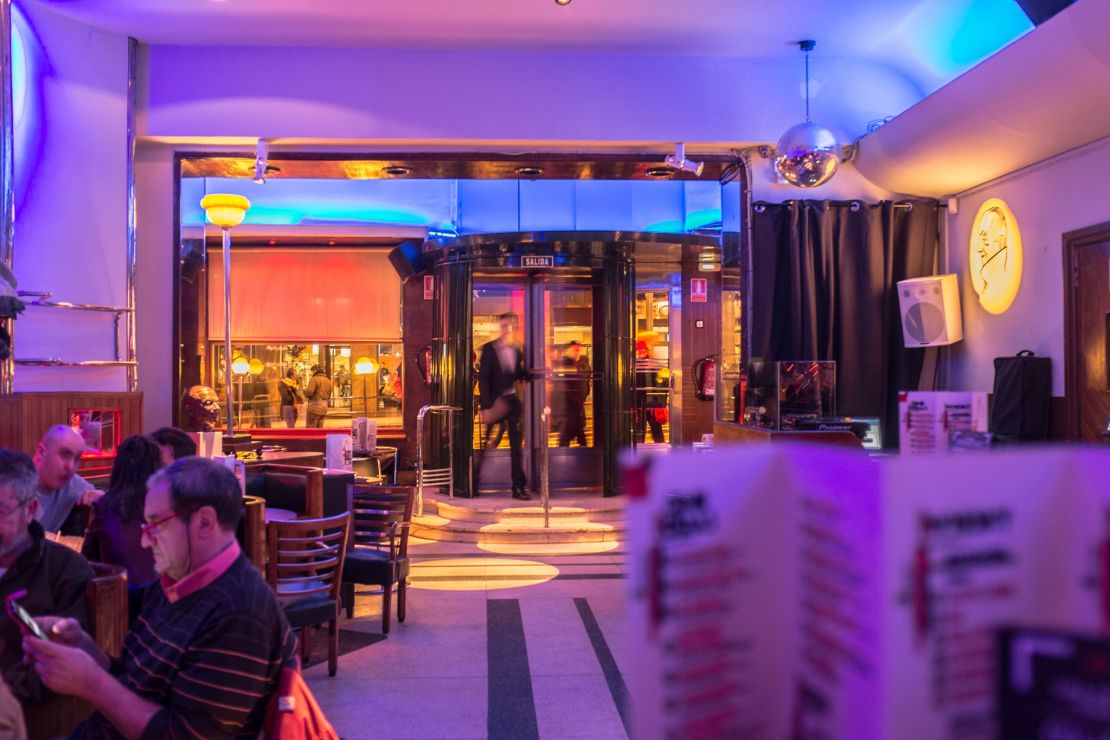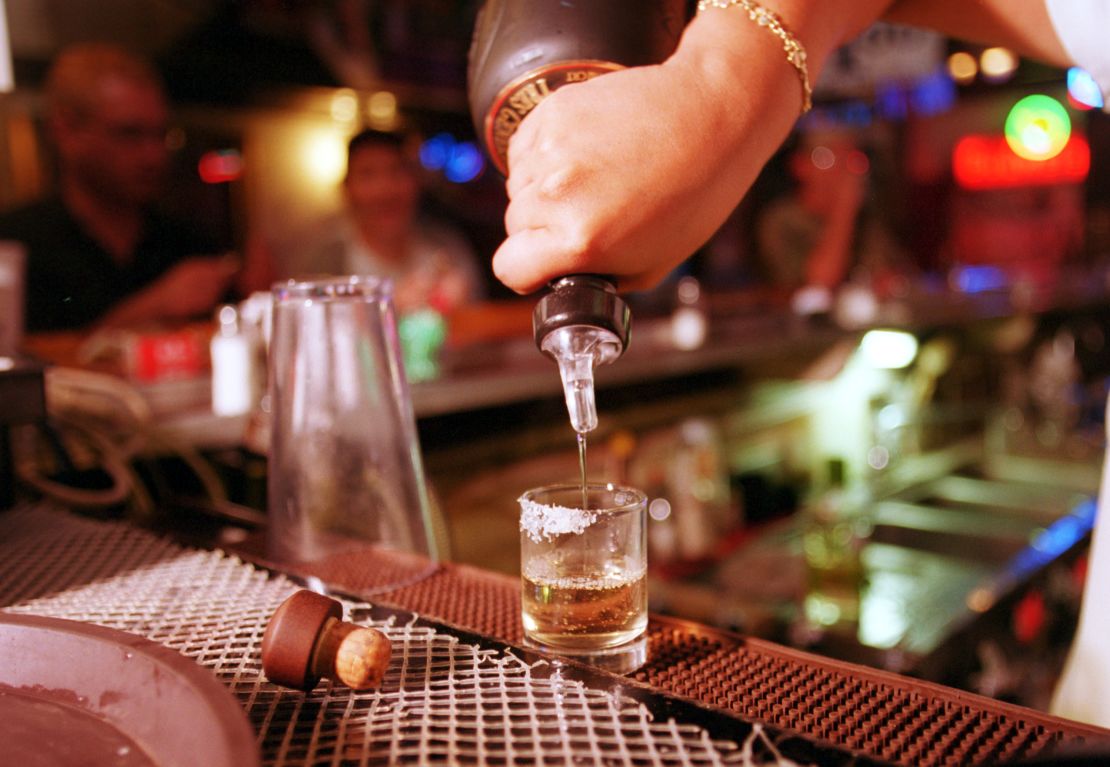Madrid likes to party. With near-mandatory siestas after lunch and sometimes after work too, who can blame the 3 million inhabitants of the great city in the center of Spain for wanting to work off all that excess energy?
Despite its cultural sophistication and flair, Madrid’s unpretentious bar scene and vibrant nightlife provide no end of opportunities to do just that.
It goes on late, too. At a time when visitors from more “sensible” destinations might be moving on to warm cocoa and a pair of slippers, Madrileños are just getting started. If you’ve got the urge and the energy to join them, here’s a quick sample of what’s on offer after dark in Madrid.
8 p.m. – Cañas, tapas and friends

Going out in Madrid often begins as a relaxing after-work drink that quickly turns into a frenzied adventure – seldom ending before 2 a.m. Reasons for the late schedule include a rather laid-back attitude concerning where and when to meet, the exceptionally strong cocktails and the sheer volume of venues to choose from.
Once committed to going out, though, it’s probably best to give up any notion of planning the evening and just enjoy the ride. Many Madrileños were born outside the capital, adding to the diversity of the scene at the crowded tapas bars.
Unlike many city nighttime scenes, what you wear doesn’t particularly matter – it’s not unusual to see a well-dressed pijo (posh individual) rubbing shoulders with a T-shirt sporting 20-something.
The best places to soak up the local atmosphere are the areas of Plaza de Santa Ana, Malasaña and La Latina (particularly near Cava Baja), which are always bustling, especially at night. Most young (and not-so-young) people gather at one of the many hole-in-the-wall tapas bars, where they can enjoy cold cañas (beers) with an assortment of tapas.
Be warned, though – many of the tapas bars are small and overcrowded with standing-room only.
A popular choice with locals and visitors is El Lacón, a traditional Spanish tavern (with ample seating this time) featuring a free tapas dish with every beer ordered. With prices starting at $1.75 (€1.35) and generous portions, a few rounds will suffice to get most folk feeling fed and festive.
For a more “modern” ambiance, visitors flock to any of five Lateral restaurants (the newest is located on the scenic Paseo de la Castellana) found around Madrid. The decor is minimalist, the tapas creative and the patrons are attractive. Wine trumps beer, and sangria ($15 (€13.70) per pitcher) rules supreme on the summer terraces.
10 p.m. – Next stop, copas

For those not satisfied with tapas, it’s good to know that 10 p.m. is the earliest Madrid locals venture out to dinner in this city and many restaurants cater to that schedule.
Some folk remain at the bars and switch to larger raciones (main dishes meant to be shared), while others, rising from their post-work siestas, are refreshed and ready to begin the night’s revelries. Following the “evening” meal, it’s generally time to enjoy some copas, or cocktails, instead of wine.
During the summertime, hopping from one terrace venue to another until last call (between 2 a.m. and 3 a.m.) is standard. When it gets colder, revelers usually linger at their favorite bars until it’s time to hit the clubs.
In a city as cosmopolitan as Madrid, keeping up with changing trends is a challenge. Yet locals remain obsessed with the classic gin and tonic.
Tastings, tours and entire bars are dedicated to the timeless combination, such as the Brit-inspired Bristol Bar. It features over 120 varieties of gin lovingly selected by owner and enologist, Ellie Baker. English meals are also an option in an elegant gin parlor setting.
Interior design lovers adore the Philippe Starck decor at the ultra-chic Ramses restaurant and bar. Its baroque-cum-urban “graffiti” style is striking and offers great views of the iconic Puerta de Alcala monument. Be sure to check out the cool unisex bathroom – sometimes featuring more activity than the venue.
Visitors up for a spot of nostalgia might like the art deco bar Museo Chicote, which has hosted such luminaries as Sinatra, Gardner and Hemingway since its inception in 1931. There’s a rather charming gallery on the bar’s website if you’re curious. The iconic cocktail bar (it’s a DJ lounge on weekends) serves a seemingly endless list of cocktails and retains plenty of its golden-era magic. The mojito is great.
3 a.m. – Nightclubs for all

When the bars close, the die-hards keep partying at Madrid’s many nightclubs. Most open at midnight but start swinging only after 1:30 a.m. For those clubs that stay open until at least 6 a.m., things generally don’t heat up until 4 a.m.
There’s a club to suit any taste, so determining the best one is nigh-on impossible. What remains constant is the collective energy that fuels Madrid’s legendary nightlife long after most cities have hit the hay.
Joy Eslava has been a nightlife institution in Madrid since the 1980s. The crowd is mixed, the dance floor is enormous and the decor is a bit dated. But with inventive club nights, a relatively low cover charge of $8.70 (€8) and surprise appearances from flashy dancers, it offers harmless, kitschy fun until 6 a.m.
Swanky club Gabana 1800 pretentiously calls itself “The best club in Madrid” on its website, so, as you might expect, there’s a velvet rope, VIP tables galore and an impressive roster of celebrity visitors. The stylish over-25 clientele get to hear the usual slew of “top” DJs while forking out a slightly pricey $15-ish (€14) minimum per drink. Door policy is strict, so hopefuls arrive early (Gabana opens until 5 a.m.) looking for a glimpse of Madrid’s jet set.
Lastly, if you still need options, Palacio Fortuny is a 19th-century palace turned club venue featuring three levels, including a restaurant. This opulent venue offers an ample garden, terrace and an event space, making it one of the trendiest hangouts for the slightly older crowd, especially in summertime. Basically, a whole heap of fun and buzzing till sunup – a lot like the rest of this great city.
Editor’s note: This article was previously published in 2012. It was reformatted and republished in 2017.



